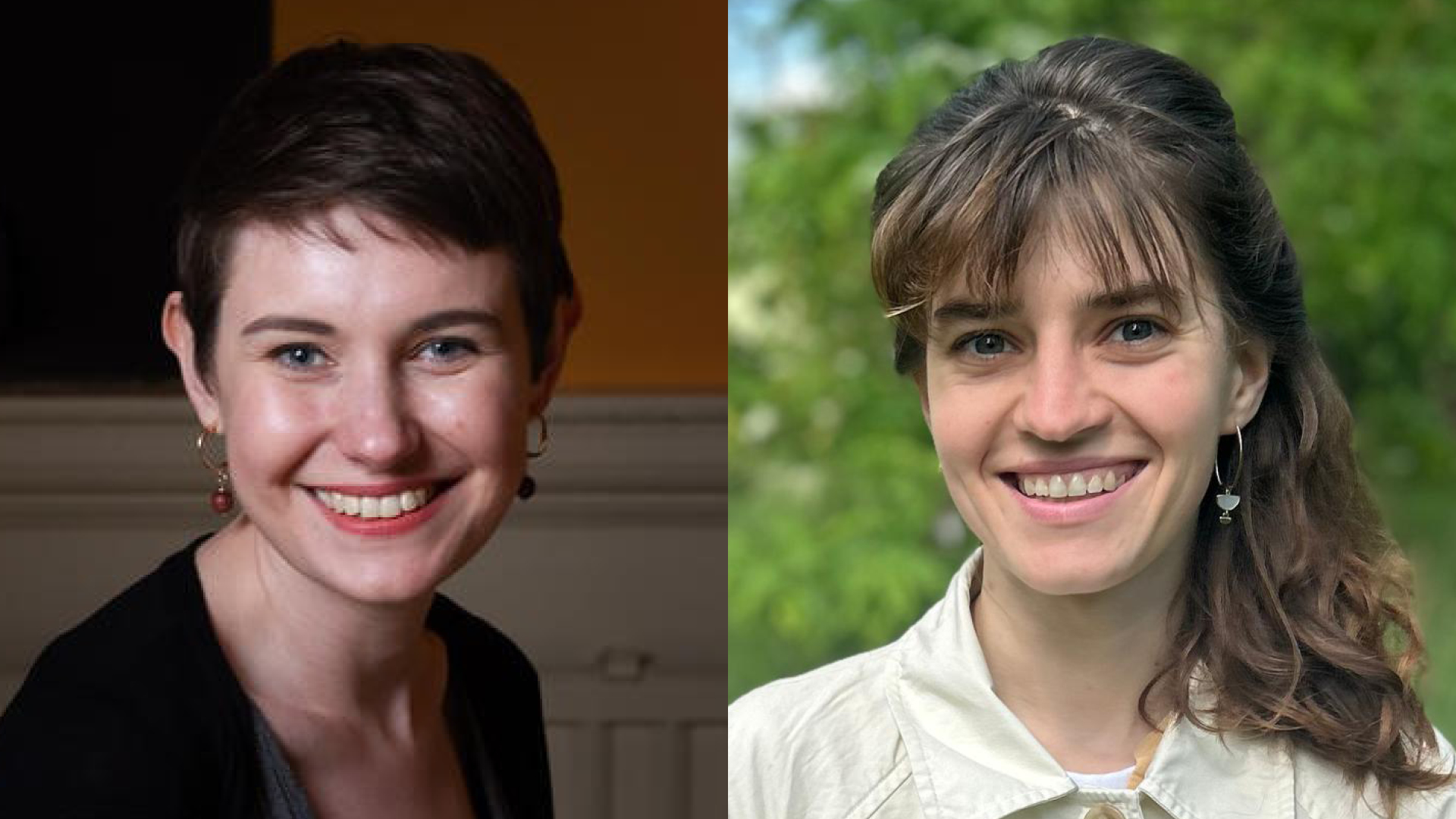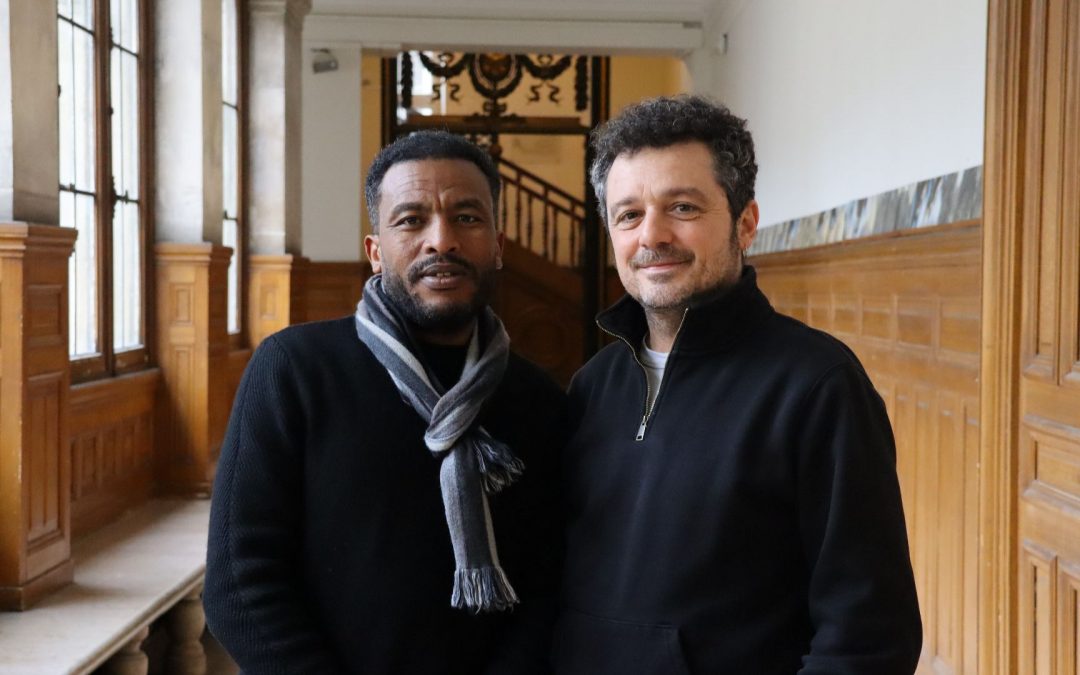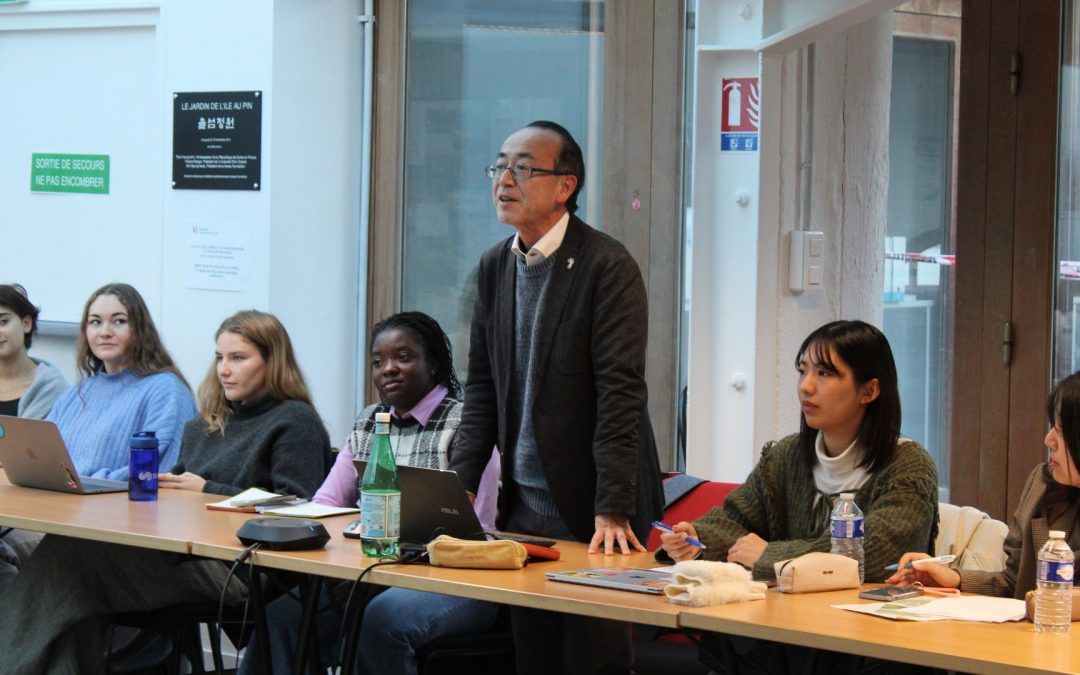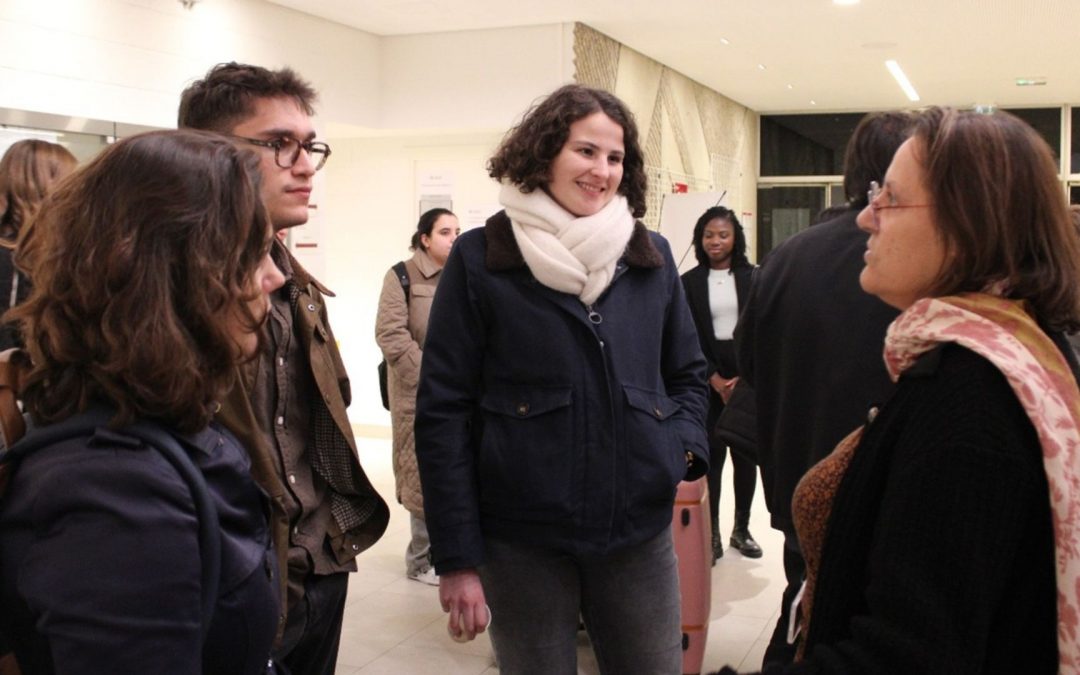Martyna Zielinska, a doctoral student at the Larca interdisciplinary research unit at Université Paris Cité and Dr Emily Brady, Broadbent Junior Research Fellow at the Rothermere American Institute, University of Oxford collaborated under the framework of the Paris-Oxford partnership (POP). In October 2023, they co-organised an international conference, “Love and Lenses: Photographic Couples, Gender Relationships, and Transatlantic Networks in the Long Nineteenth Century”. Discover their project in this exclusive interview.

Emily Brady and Martyna Zielinska
(left to right)
Image © Sam Staniforth (Emily Brady left)
Why did you respond to the Paris-Oxford calls for research projects?
MZ: I obtained an international doctoral contract between LARCA (UPCité), the Maison Française d’Oxford and the CNRS to carry out a thesis at the crossroads of the history of photography and the history of women and gender. My topic concerns the spread of nineteenth-century feminist ideas in photographic circles (clubs, press, exhibitions) through the transatlantic journey of an Anglo-American couple-Catharine W. Barnes Ward (1851-1913) and Henry Snowden Ward (1865-1911). I wanted to make the most out of the POP partnership to pursue the questions raised by the archival work during my thesis with colleagues working on similar themes but belonging to international academic networks.
The POP partnership was a natural choice, as it encourages PhD students to develop transnational projects. Emily was one of the few Oxford scholars working on both American history and women photographers. As we are not at the same stage in our academic careers, nor working on the same periods, Emily brought not only her experience as a more experienced young researcher, but also a new perspective to my research.
Can you tell us more about your research ?
EB: My research is on women photographers in activist movements. I am currently working on my monograph which is on African American women photographers with focus on the 20th century. I previously did some work on modern slavery and human trafficking, so I knew a little about the 19th century. I was relatively new to Oxford when Martyna contacted me. I received an email from her in December 2022 requesting to partner up, since we did not know each other, we both had to take a leap of faith when submitting the application. It became a real collaborative chance in a way. Once the confirmation for the funding was approved, the project got started. We were able to refine it and funnel it down. The conference took place in October 2023.
MZ: At the time of the application, I was associated with the Maison Française d’Oxford, so we interacted first virtually, then met in person in Oxford, which enabled us to set up all the logistics for the conference as well as the exhibition that accompanied the event.
Why did you organise the conference ?
EB: The conference was really Martyna’s vision, she was the one who had the spark of the idea. I was really able to help, to refine and shape her vision. It was a fair division of labour as well.
MZ: I wanted to bring together doctoral students and researchers from both sides of the Channel to explore a new approach to the history of photography in the 19th century. Since the invention of photography, men and women, spouses, friends and family members have been learning and practicing photography together for work, pleasure, education and science. By taking these collaborations as an example, we can propose a more balanced and inclusive approach to the history of photography. It also provides an opportunity to reflect on gender conventions in the Victorian and Edwardian eras.
How did the grant contribute to advancing interdisciplinary research ?
EB: Because of the funding, we acquired support people from not only Paris and Oxford but from around the world. We really wanted to reach a spread of people from different geographies notably, India, Canada, the United States and also from different career stages. Participants were generous with their questions, engagement with the papers and real intellectual curiosity.
MZ: On an academic level, the conference made it possible to demonstrate through various case studies how the practice of photography could have a tangible impact on relations between men and women and redefine certain nineteenth-century social conventions. The funding has helped consolidate the institutional ties I was able to develop as part of my doctoral contract between the CNRS, the Maison Française d’Oxford and LARCA. The project helped to publicize the research activities of LARCA, particularly in the history of photography and the history of women and gender in the Oxonian academic network. It was also the first time that the Maison Française d’Oxford and the Rothermere American Institute had collaborated together. We also organised an exhibition that ran for four months at the Maison Française d’Oxford from October 2023 to January 2024, highlighting our personal research and bringing it to a wider audience.
How would you describe your experience in a few words ?
EB: A rewarding experience, organising the event with Martyna made me think more imaginatively and optimistically. These types of collaborations are worth the risk. It shaped my research, the understanding of my own subject and made me more embedded within the Oxford community. I would encourage people to take the leap.
MZ: Emily was generous with her knowledge and very professional throughout the process. For young researchers like me, this kind of experience is a confidence booster.
For more information
Discover the conference
Download the programme
Call for applications Paris-Oxford 2024
Read more

Abraha and Pierre: A Friendship to Preserve the People’s Memory of War
In Paris, two historians’ paths crossed. One had just arrived from Ethiopia, carrying notebooks filled with daily observations written during the war in Tigray. The other, based in France, is a specialist of Ethiopian modern history. From this encounter, a partnership...
read more
KEYS 2025 International Conference: A Franco-Japanese Meeting on Ecological Transitions with the University of Kitakyushu
![[Circle U.] Summer school “New avenues for Global Health”](https://u-paris.fr/wp-content/uploads/2026/01/SUMMER-SCHOOL-CIRCLE-U.-2-1080x675.jpg)
[Circle U.] Summer school “New avenues for Global Health”

“Open UE”: looking back on an interdisciplinary adventure organised by the Cardiovascular Sciences Graduate School
The “open UE”, launched by the Graduate School Cardiovascular Sciences, brought together researchers, clinicians, and experts from diverse fields for a week to explore major issues in biomedical and translational research. Open to all students across the 29 Graduate Schools of Université Paris Cité, it offered a unique space for learning and interdisciplinary exchange.
read more